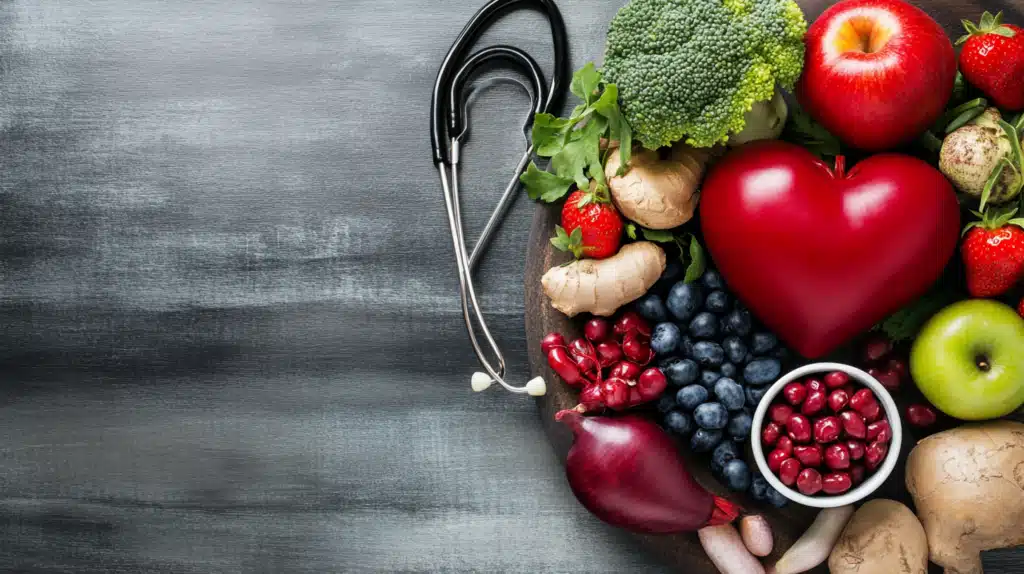When it comes to keeping our bodies healthy, we often think of heart health as the main player. But veins, the large blood vessels that return blood to the heart, are just as important. Many people do not know how crucial vein health is to maintaining a healthy heart or how cardiovascular health plays a prominent role in the parameters determining vein health. This article will discuss why you should take care of your veins as much as you take care of your heart.
What Are Veins and What Do They Do?
Veins play a key role in the circulatory system as they transport deoxygenated blood back to the heart. Having a good grasp of the anatomy and function of veins is essential to appreciate their role in the greater scheme of things. When veins aren’t working properly, the human body can find itself facing serious health issues — disrupting not only circulation but heart function as well.
It’s not uncommon to have vein problems, from varicose veins to deep vein thrombosis (DVT) — they can happen without even knowing it. These conditions can interfere with adequate blood flow, resulting in:
– Swelling
– Discomfort
– More serious risk factors, if left untreated, such as blood clots and venous ulcers
A Vein Specialist can identify these problems early to prevent long-term damage.
Understanding Heart Health
The heart functions as the body’s powerhouse, ensuring blood circulates to deliver oxygen and nutrients to every organ. A properly working heart is the key to survival, and a malfunctioning heart can result in serious health problems.
How the Heart Works
The heart is a powerful, muscular organ about the size of a fist. The heart acts like a pump that distributes oxygenated blood throughout the entire body as it collects waste, such as carbon dioxide. The heart works in a cycle of contraction and relaxation and is controlled by a complex electrical system.
Common Heart Problems
Heart disease is one of the leading causes of death worldwide and affects millions each year. Some heart disease is inherited, but a lot comes simply from lifestyle and preventable risk factors. These are some of the common heart problems:
Coronary Artery Disease (CAD)
Coronary artery disease happens when plaque collects in the arteries, narrowing them and limiting blood flow to the heart. This can cause chest pain (angina) and raise the risk of heart attacks. Risk factors involve:
– High cholesterol
– Smoking
– Excessive weight
– High blood pressure
Heart Attacks (or Myocardial Infarction)
In a heart attack, blood flow to the heart becomes completely obstructed, usually because a clot has formed in a narrowed artery. Heart muscle tissue starts to die without oxygen. Symptoms include:
– Chest pain
– Shortness of breath
– Nausea
– Dizziness
Fast medical help is key to survival.
Heart Failure
Heart failure is when the heart isn’t pumping blood effectively, which causes fluid to back up in the lungs and other areas of the body. It can be caused by conditions such as:
– High blood pressure
– Coronary artery disease
– Previous heart attacks
Symptoms may include fatigue, shortness of breath, and leg swelling.
The Link Between Vein Health and Heart Health
Our cardiovascular system is a wonderful system that is made of the heart, arteries, and veins. These three organs are great for keeping blood in the right flow throughout the body. Though many people view the heart as the main engine driving circulation, veins are an important part of the system, as they carry deoxygenated blood back to the heart. If these veins become weak or damaged, then this can affect heart function directly, causing strain that could lead to serious cardiovascular problems down the line.
How Vein Issues Can Affect Heart Health
When veins don’t correctly transport blood, the heart has to exert more effort to make up for inadequate circulation. This additional strain can create cardiovascular complications such as:
– High Blood Pressure. When veins have difficulty pushing blood back to the heart, blood pressure can rise — adding stress on the heart and increasing the risk for hypertension and heart disease.
– Venous thromboembolism (VTE). Lack of blood flow can cause blood clots in the veins (deep vein thrombosis). These clots can move to the lungs, resulting in (potentially fatal) pulmonary embolism.
– Chronic Venous Insufficiency (CVI). CVI occurs when blood pools in the veins because of weak or damaged vein valves, resulting in swelling, pain, and leg ulcers. Over time, CVI can impair and reduce circulation efficiency, which has consequences on the ability of the heart to function adequately.
– Higher Heart Failure Risk. Other issues, such as varicose veins and DVT, could also lead to a higher risk of heart failure, especially for patients with pre-existing heart issues.
The Effects of Heart Issues on Veins
There is a two-way relationship between the veins and the heart. Just as vein issues can lead to heart problems, heart conditions can also adversely affect vein health. For example:
– Heart Failure and Fluid Retention. If the heart isn’t pumping well, blood can back up in the veins, causing swelling in the ankles, legs, and feet. This condition — known as edema — is often a marker of declining heart function.
– Poor circulation. A weak heart has difficulties circulating the blood, which can lead to blood being moved slowly in the veins, increasing the chances of clot formation.
– Irregular Heartbeats and Blood Flow. Changes in heart rhythm may also disturb blood flow, which can lead to pooling and potential clotting within the veins.
The Importance of Keeping Both Your Veins and Your Heart Healthy
Veins and the heart are connected, so caring for either one serves the other. Improving vein health by embracing the right lifestyle—staying active or following a heart-healthy diet—reduces the workload on the heart. The same goes for good cardiovascular health, which supports healthy veins with regular exercise and a balanced diet that keeps circulation strong.
Conclusion
Vein health and heart health go hand in hand, and both are essential for overall well-being. Knowing this correlation can empower you to prevent your circulatory system from suffering.
Proper diet, exercise, and lifestyle can help you prevent both venous and heart problems, definitely giving you a long functional life. Bear in mind that your veins and heart are partners in circulation—treat both well, and they’ll treat you well.
















